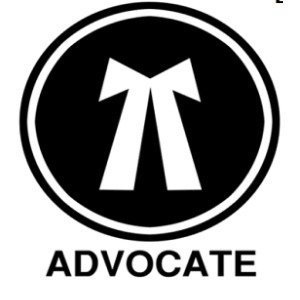Best Public-Private Partnerships (PPP) Lawyers in Ramallah
Share your needs with us, get contacted by law firms.
Free. Takes 2 min.
List of the best lawyers in Ramallah, Palestine
About Public-Private Partnerships (PPP) Law in Ramallah, Palestine
Public-Private Partnerships (PPP) are collaborative agreements between governmental bodies and private sector entities aimed at providing public services, infrastructure, or development projects. In Ramallah, Palestine, PPPs are increasingly being used to address gaps in public infrastructure and services through sharing resources, risks, and rewards. This method allows the government to leverage private sector expertise, efficiency, and capital, while the private sector benefits from stable, long-term projects and returns. While the concept is relatively new in Palestinian territories, initiatives are underway to encourage more PPPs as a means of sustainable development, especially in sectors like energy, transportation, education, and healthcare.
Why You May Need a Lawyer
Navigating a PPP arrangement can be complex due to the intersection of public regulations and private interests. Individuals and companies often seek legal counsel in situations such as:
- Understanding and interpreting PPP contracts and agreements
- Participating in government tenders or bids for PPP projects
- Structuring investment and partnership agreements
- Ensuring compliance with local and international laws
- Resolving disputes between public authorities and private partners
- Addressing issues related to land use, permits, and zoning
- Protecting intellectual property and confidential information
- Negotiating risk allocation, revenue sharing, or termination clauses
- Handling changes in regulations or political climate
Whether you are a private investor, a public official, or a citizen affected by a PPP project, having a knowledgeable lawyer can help protect your interests and ensure that your rights and obligations are clearly defined and upheld.
Local Laws Overview
The legal framework for PPPs in Ramallah, and generally in Palestine, is evolving. Key legal aspects include:
- No comprehensive national PPP law to date - PPPs are currently governed by a patchwork of relevant laws such as the Public Procurement Law, Commercial Law, Civil Law, and sector-specific regulations (e.g., Energy, Water).
- Ministry of National Economy oversight - The Palestinian Ministry of National Economy is currently leading efforts to develop a unified PPP policy and is responsible for reviewing large-scale partnerships.
- Municipal Authority regulations - In Ramallah, local regulations also play a role, usually regarding municipal development projects, land use, and permits.
- Contracts and Legal Certainty - PPP agreements must comply with general contract law principles under Palestinian Civil Code, ensuring validity, enforceability, and clarity in terms.
- Dispute Resolution - Disputes are usually resolved through negotiation, arbitration, or, if necessary, the local courts.
- Transparency Requirements - Regulatory frameworks emphasize transparency and competitive tendering to mitigate corruption and ensure fairness.
- Foreign Investment Laws - Projects with foreign partners may be subject to additional requirements from the Palestinian Investment Promotion Agency (PIPA).
Ongoing legislative reforms aim to introduce a comprehensive PPP Law, which would provide clearer, more unified guidance for stakeholders in PPP projects.
Frequently Asked Questions
What is a Public-Private Partnership (PPP)?
A PPP is a formal agreement between a government entity and a private company to develop, finance, operate, or maintain a public project or service.
Are there laws specifically regulating PPPs in Ramallah, Palestine?
Currently, PPPs are not governed by a standalone law but by a mix of public procurement, commercial, and sector-specific laws. A dedicated PPP law is under consideration.
Who oversees PPP projects in Ramallah?
PPP projects are generally overseen by the relevant sector ministry (like the Ministry of National Economy or Ministry of Finance) as well as local municipal authorities in Ramallah.
Do foreign companies face special requirements to join a PPP?
Yes, foreign partners must comply with local laws governing foreign investment, often involving registration with PIPA and sometimes partnership with local firms.
What are the main risks in a PPP for private partners?
Risks include changes in regulations, political instability, financial risk, project delays, or disputes with public partners.
How are disputes usually resolved in PPP agreements?
Dispute resolution is often handled by negotiation or through arbitration. If these methods fail, disputes may go to local courts.
Do PPP contracts require public tender in Ramallah?
Most PPP projects require a transparent, competitive tender process as stipulated by the Public Procurement Law.
What sectors are most active for PPPs in Ramallah?
Key sectors include infrastructure (roads, utilities), education, healthcare, waste management, and energy.
How long do PPP projects typically last?
PPP project durations can range from 5 to 30 years, depending on the nature and scale of the project.
How can a lawyer help me with a PPP project?
A lawyer can assist with drafting and reviewing contracts, ensuring compliance with the law, securing permits, negotiating terms, and representing you in disputes.
Additional Resources
Below are some helpful resources and organizations for those seeking more information or assistance on PPPs in Ramallah, Palestine:
- Palestinian Ministry of National Economy
- Palestinian Investment Promotion Agency (PIPA)
- Ramallah Municipality - Department of Planning and Development
- Palestinian Bar Association
- The World Bank - Palestine PPP technical assistance programs
- Local legal firms experienced in commercial and public law
- Chamber of Commerce and Industry - Ramallah
Next Steps
If you are considering entering a PPP or are currently involved in one in Ramallah, take the following steps for legal protection and informed decision making:
- Identify your role and objectives in the PPP arrangement
- Seek an initial consultation with a lawyer specializing in public procurement, commercial law, or PPP projects
- Gather all relevant documents such as contracts, permits, and financial records
- Discuss your potential risks and obligations with counsel
- Request your lawyer to review or draft contracts for clarity and legal compliance
- Stay updated on new government policies or legislative developments impacting PPPs
- Engage with relevant ministries or municipal departments early in the process
- Establish clear protocols for dispute resolution
Legal guidance is invaluable in navigating the complex structure and regulation of PPPs in Palestine. Engaging with experienced legal professionals will help safeguard your interests and support the success of your partnership.
Lawzana helps you find the best lawyers and law firms in Ramallah through a curated and pre-screened list of qualified legal professionals. Our platform offers rankings and detailed profiles of attorneys and law firms, allowing you to compare based on practice areas, including Public-Private Partnerships (PPP), experience, and client feedback.
Each profile includes a description of the firm's areas of practice, client reviews, team members and partners, year of establishment, spoken languages, office locations, contact information, social media presence, and any published articles or resources. Most firms on our platform speak English and are experienced in both local and international legal matters.
Get a quote from top-rated law firms in Ramallah, Palestine — quickly, securely, and without unnecessary hassle.
Disclaimer:
The information provided on this page is for general informational purposes only and does not constitute legal advice. While we strive to ensure the accuracy and relevance of the content, legal information may change over time, and interpretations of the law can vary. You should always consult with a qualified legal professional for advice specific to your situation.
We disclaim all liability for actions taken or not taken based on the content of this page. If you believe any information is incorrect or outdated, please contact us, and we will review and update it where appropriate.













